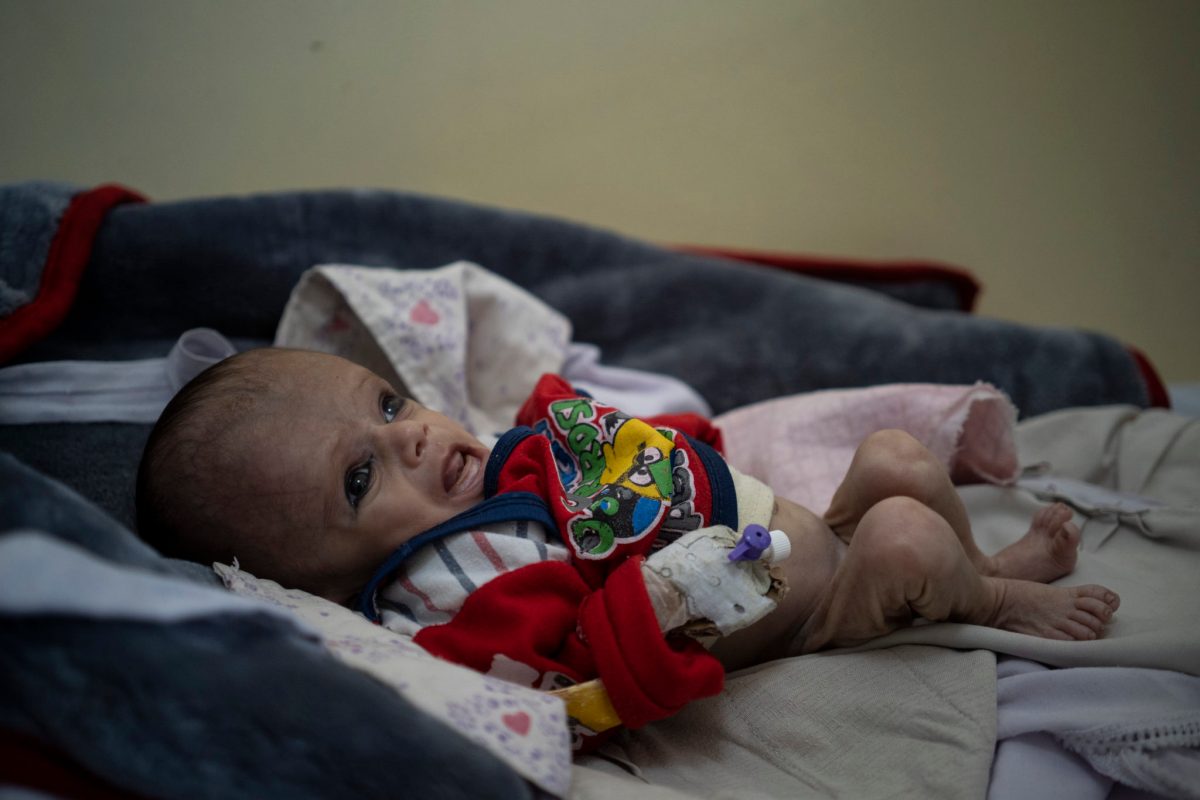In the past couple weeks, code red emails from international human rights organizations have been dropping like bombs into my inbox. The groups are sounding the alarm for Afghanistan; almost three months after the American withdrawal, people there are beginning to starve.
As of the end of October, the United Nations declared, the country was facing a “record level of acute hunger.” Now, as winter approaches, more than half of Afghanistan’s population will face “acute food insecurity.” Temperatures have already dropped into the 30s at a time when the country is in the grip of the worst drought it’s had in years. Soon, snow will blanket the mountainous regions, isolating people from the little humanitarian aid that is left.
“It is urgent that we act efficiently and effectively to speed up and scale up our delivery in Afghanistan before winter cuts off a large part of the country, with millions of people—including farmers, women, young children and the elderly—going hungry in the freezing winter,” QU Dongyu, director-general of the UN’s Food and Agriculture Organization, said last month. “It is a matter of life or death.”
The World Food Programme (WFP) says Afghanistan’s needs now surpass those of some of the most desperate places in the world, such as Ethiopia, South Sudan, Syria, and Yemen.
On top of looming mass hunger, the UN said this week that the Afghanistan’s banking system, never all that stable to begin with, is on the brink of a “colossal” collapse. If that happens, the already limited funds flowing into the country since the Taliban took over would come to a halt, worsening the already dire food crisis.
“Afghanistan last year imported about $7 billion worth of goods and products and services, mostly foodstuff … If there is no trade finance the interruption is huge,” Abdallah al Dardari, head of the UN Development Programme in Afghanistan, told Reuters. “Without the banking system, none of this can happen.”
Hunger is also being felt in urban areas, which is unusual; the Associated Press reported earlier this month that there are rising numbers of emaciated children in Kabul. Parents are unable to feed their children because they’ve lost their jobs. They’re also restricted to withdrawing just $200 a week—if they happen to live near a bank that still has any cash. And while the Taliban does not have access to billions of dollars of Afghan national reserves held abroad, the United States, the World Bank, the International Monetary Fund, and the European Union have cut off all direct financial aid.
“Afghans have already paid an enormous price for the decades of war,” David Miliband, CEO and president of the International Rescue Committee, said in a statement. “They must not pay again and again for international abandonment.”
A man named Ishaq, in the central highlands province of Bamyan, told the WFP that his family is getting by on bread, tea, and potato soup. Jinnat Gul, in Kabul, told AP that he can barely afford to feed his six children. Like Ishaq, his family eats boiled potatoes, and when he doesn’t have those, he gives his children bread soaked in green tea “so they stop crying.”
Hospitals that were already struggling to pay staff and keep supplies stocked are being overrun by the malnourished. Doctors Without Borders warns that the entire health care system “is at risk of collapsing.” A recent assessment by the International Rescue Committee found that 60 percent of health clinics “do not have the capacity to deliver nutrition programming that Afghans so desperately need.”
As David Beasley, the executive director of the WFP, said, “Hunger is rising and children are dying.” Such calamitous conditions could lead to an even bigger refugee crisis.
Meanwhile, on the ground, the circumstances are only deteriorating, leaving the people of Afghanistan with an excruciating decision: “This winter,” Beasley said, “millions of Afghans will be forced to choose between migration and starvation.”



